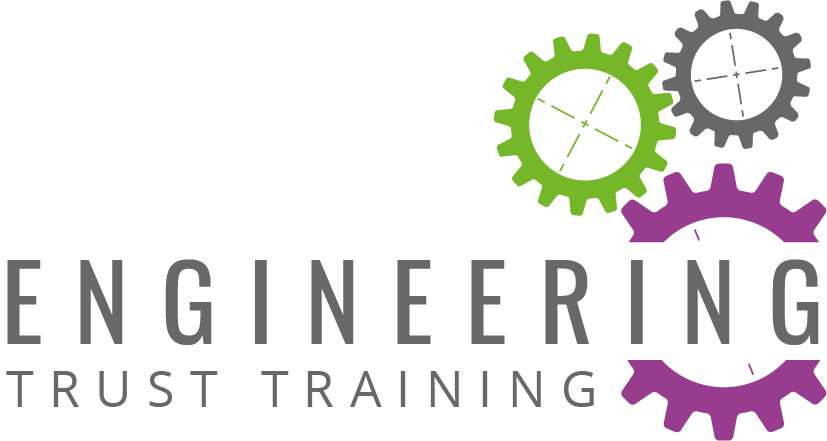
Is an Apprenticeship your next step?
The results are in… Is an Apprenticeship your next step?
It’s the day after the GCSE results and a couple of days after the A-level and BTEC result were issued to students across the UK. So for many of you, the process begins of working out which route you will take to progress your next step in life.
The build up to getting your results is a nervous time, especially following the pandemic which has affected those of you in school or college more than any other event since the second world war. Regardless of your results, there is a route out there for you and loads of support available to help you pick which one to take.
In our opinion, an Apprenticeship is a great route both for those who have completed GCSEs and those who are finding what to do at 17 or 18. Of course, most forms of education - whether that is an apprenticeship, college course or University course - can be started at any age.
For this blog, we’re concentrating on Apprenticeships because that’s what we specialise in as an organisation. Other people such as UCAS are a great place to go if you want more information about University, and helpfully they also have loads of info. about apprenticeships. If you are considering college then find out what courses are available from your local college.
So, Apprenticeships…
Three key things you need to do an apprenticeship
- Passion for the subject or industry
- The motivation to learn
- The commitment to a full time job
Apprenticeships come in all shapes and sizes
Pretty much every industry offers apprenticeships from level 2 up to 7 which is a Bachelor’s or Master’s degree.
Yes, you can use an apprenticeship to learn up to degree level and can jump onto the apprenticeship ladder at any level, depending on what you have already achieved.
You will need to apply for apprenticeships within an industry that interests you - we’ve called it a ‘passion for the subject or industry’ in the key points above. That doesn’t mean you have to decide now on what role or industry you will work in for the rest of your career! However, you need to find an apprenticeship within a business that engages you.
Entry requirements
The employer, in most cases, sets what existing level of learning they want from the people applying for their apprenticeship role. We, as a Training Provider, also have to check that you have the ability to learn at the level of apprenticeship you have applied for. Apprenticeships offer multiple entry levels so there are opportunities for those who have low achievement at school or college, but also for those who have excelled.
Training & Qualifications
Much of the training is done within the business, learning from experienced staff members. Different apprenticeships have different qualifications associated to them, and any that are required will be achieved by either day release or block release to your Training Provider, College or University. Every apprentice has to be given 20% of their working (paid) time to complete new learning so an apprenticeship really does give you the opportunity to be paid to learn. You do however, have to have the motivation to learn and be ready to take on as much information as you can both in the workplace and in an academic environment.
Earn while you learn!
Apprenticeships give you the ability to earn a wage while also learning. You will have a full time job and will be treated like any other employee of the business, benefitting from the same rights with your salary increasing throughout your apprenticeship as you become more competent in your role.
Work Experience
The key difference of an apprenticeship, as opposed to other learning routes, is the experience you gain in the workplace. A typical level 3 Engineering apprenticeship is 3 years long. That is three years of work based knowledge and skills that you can put on your CV and an excellent foundation on which to build your career. A great number of apprentices will stay at the company within which they complete their apprenticeship, far beyond their completion date. The training is an investment in time and money for the employer, used to safeguard their workforce of the future, so there is a benefit to all involved when an apprenticeship is completed successfully.
Getting an Apprenticeship - it’s a competitive process
Like any job application and recruitment process, there is no guarantee of getting an apprenticeship. This means you must submit a full and engaging application form plus do your research into any businesses you are put forward to. Practice your interview techniques and prepare in order to give yourself the best possible chance of success. More hints and tips here >
There is no right or wrong route to take
We always advise people to consider multiple options when planning how you take your education and career forward. Different people learn in different ways, have different ambitions and different motivations in life so there isn’t one solution that fits everyone.
Whatever route you choose, make sure it is the one that feels right for you, follows something you have a passion for and makes you happy!
Useful links…
Governments ‘Find an Apprenticeship’ website: https://www.gov.uk/apply-apprenticeship
National Apprenticeship Service: https://www.apprenticeships.gov.uk/
UCAS: https://www.ucas.com/
Written by Mark, CEO.
